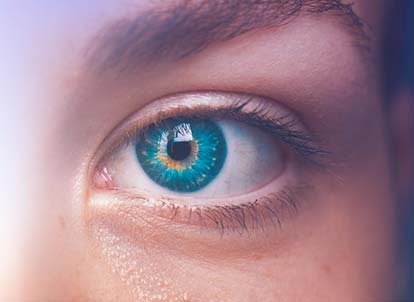Click Here to view More Content Writing Examples.
Main Keyword (in italic): cataracts, cataract surgery
Secondary Keywords (in italic): Throughout Content.
 We usually take our human sight for granted. What would do without our eyesight? We wouldn’t experience the world the same. There are some diseases that affect our eyesight and it’s important to know about them. Cataracts is one such disease. Cataracts will lead to blurred vision and eventually you will experience blindness. Cataracts are caused by a build up of protein. This protein clouds the lens of the eyes. Cataract Surgery may be needed to rectify the situation. In this article we will chat briefly about Cataracts then cover 6 Key Things about Cataract Surgery: 1. Why is Cataract Surgery Performed?, 2. How to prepare for Cataract Surgery?, 3. What happens during Cataract Surgery?, 4. What to expect after Cataract Surgery?, 5. What can go wrong with Cataract Surgery? and 6. What are the Alternatives to Cataract Surgery?
We usually take our human sight for granted. What would do without our eyesight? We wouldn’t experience the world the same. There are some diseases that affect our eyesight and it’s important to know about them. Cataracts is one such disease. Cataracts will lead to blurred vision and eventually you will experience blindness. Cataracts are caused by a build up of protein. This protein clouds the lens of the eyes. Cataract Surgery may be needed to rectify the situation. In this article we will chat briefly about Cataracts then cover 6 Key Things about Cataract Surgery: 1. Why is Cataract Surgery Performed?, 2. How to prepare for Cataract Surgery?, 3. What happens during Cataract Surgery?, 4. What to expect after Cataract Surgery?, 5. What can go wrong with Cataract Surgery? and 6. What are the Alternatives to Cataract Surgery?
Cataracts
Cataracts are the result of build-up of protein in the eye. The protein denaturation occurs in the crystalline lens. For a normal eye, light passes through the lens and reaches the retina. It then creates neural signals for the brain. But with Cataracts, the retina does not get a sharp image from the light because of the clouding of the lens. Cataracts mainly occur because of old age. But they can also appear due to eye injuries and even following eye surgery (for other problems). Sometimes Cataracts can be present from birth. In poorer countries children may develop cataracts. There are 12 million people world wide that suffer from cataracts. People that have Cataracts.
As you get older it’s quite normal that these proteins in the lens of the eye start to break down and clump together. This causes the cloudiness in the lens that is a cataract. By the age of 80 almost everyone has started to develop cataracts. Those that are more at risk include: People with a family history of cataracts, diabetes sufferers, smokers, people using corticosteroid medicines for long periods, people spending a lot of time under sunlight, people that had previous eye injuries, people that had previous eye surgery (e.g. vitrectomy) and people that have had radiation treatment such as for cancer. Once you have been diagnosed with Cataracts, ultimately you may need Cataract Surgery.
1. Why is Cataract Surgery Performed?
Quite simply, a Cataract is a cloudiness in one eye or both. It is a clouding of the lens part of the eye. With normal unaffected people the lens is usually clear. Cataracts can attack one or both eyes. Old people mainly develop cataracts. But there are some cases in young people. Some babies are even born with a cataract and this is called a congenial Cataract. An interesting fact is that Cataracts are the number one cause of blindness in adults internationally. The treatment for Cataracts is surgery on the affected eye to remove the cloudy lens and replace it with a permanently implanted plastic lens called an intraocular lens.
2. How to prepare for Cataract Surgery?
On the day of the surgery you will be given eye drops that include an antibiotic. You will then have a small plastic tube inserted into a vein in your arm. You will also be given an injection around the eye and this will make your eye go numb. Most patients will have local anaesthetic sedation. Some will have general anaesthetic.
3. What happens during Cataract Surgery?
The procedure begins with you being asked to lie on your bacl for up to 45minutes. The Doctor will make a small cut in the eye to remove the cloudy lens and to insert the plastic lens. During this procedure there will ne medical aids that you can talk to.
4. What to expect after Cataract Surgery?
Your doctor will place a pad of the affected eye that was operated on. There will definitely be some discomfort in that eye. You should instantly alert a Doctor so they can give you something to alleviate your pain. You will most probably be given eye drops. You should take them for the duration suggested.
5. What can go wrong with Cataract Surgery?
Problems with cataract surgery are few and far between. A few patients have experienced bleeding, infection or actual damage to eye itself. You must alert the medical staff if you notice your eye becoming red and painful or if there is fluid coming from the eye. If your site progressively is getting worse that is also a tell tale sign.
6. What are the alternatives to Cataract Surgery?
With cataracts, prevention is better than the treatment. During your lifetime you can make some good nutritional choices early on. Let’s face it, we don’t always eat food that is rich in vitamins. Usually we go for junk food particularly when we are young. Fruits and Vegetables are rich in vitamins that will reduce the risk of cataracts. Foods high in antioxidants help the body stay young and stop the ageing process. Furthermore, smoking and drinking alcohol is a no no! These unhealthy elements directly affect your bodies organs in general. You can also avoid ultraviolet light. Ultraviolet light can increase the risk of cataracts. So then wearing cool sunglasses can assist. You also should rest the eyes were possible. Computer operators should take breaks every 15 minutes. Having regular eye examinations can detect cataracts at an early stage.
Eye drops can also help and alleviate the blurred sight. As an interim solution an eye specialist may provide low vision devices that may sharpen your remaining vision.
But there is no lite medical treatment for cataracts. The only major solution is eye Cataract Surgery. There is also a self-test for cataracts which is a series of questions like “Have you had previous eye operations?” and “Do you have halos and glare at night?” etc.
Perhaps, depending on the severity of the illness but you must be careful and wear corrective lenses. People with Cataracts can also use vision aids and magnifying aids in the short term. Electronic Magnifiers (13inch screen) are popular. Even if you don’t have any known vision problems, you should visit an optometrist every 2 years. The optometrist will give you a thorough eye examination.
Conclusion
With todays advancements in surgical procedures there is hope for people suffering from Cataracts. It is up to you the patient to get regular checkups so as to detect the formation of the Cataracts. But sometimes we are pre-disposed to this illness and so surgery is the only option. Now days the Cataracts Surgery is very advanced and thank god it has a very good success rate. We have defined Cataracts and covered Six Key Things about Cataract Surgery: 1. Why is Cataract Surgery Performed?, 2. How to prepare for Cataract Surgery, 3. What happens during Cataract Surgery?, 4. What to expect after Cataract Surgery, 5. What can go wrong with Cataract Surgery and 6. What are the Alternatives to Cataract Surgery.

